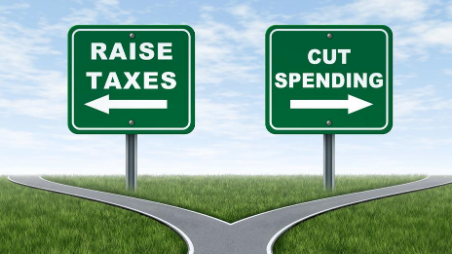The national debt is now at $27 trillion, or about $190,000 per household. This amounts to nearly 130% of gross domestic product (GDP), the highest level we’ve ever had (debt to GDP reached 112% in World War II, but would soon fall to under 30% in the decades after).
Despite this massive amount of debt, the interest payments owed by the federal government have continued to decline. Why? Interest rates have been declining for nearly 40 years, allowing the government to refinance its debt over and over at lower rates. In the latest rounds of stimulus bills, the federal government was able to borrow several trillion dollars for barely any interest cost at all.
Presently the government can issue 1-year Treasury bills for 0.1% or $10 of interest on $10,000. At the other end of the spectrum, the government can issue 30-year Treasury bonds for 2.4% or $240 on $10,000. While considerably higher interest cost than 1-year bills, the government benefits by locking in this rate for the next 30 years.
As homeowners, many of us are faced with this same decision: a 30-year fixed mortgage (ensuring our payments won’t change over the life of the mortgage) or a floating-rate mortgage (where the rate is lower initially but could rise substantially later on). It’s estimated about 90% of us choose fixed-rate mortgages, however, over the past 40 years, an adjustable-rate mortgage was the way to go.
Our government is doing the opposite. Taking advantage of very low short-term (floating) rates, the government is increasingly issuing debt with shorter maturities. While this results in lower interest payments now (good for the current budget deficit) it has the potential to result in big trouble, later on, should rates rise.
According to the Economist, for every 1% increase in interest rates, the government’s interest payments will increase by $300 billion per year. By choosing not to “lock in” rates long-term, financing the national debt could soon crowd out essential spending, or require significant tax increases.
PLEASE SEE IMPORTANT DISCLOSURE INFORMATION HERE.




